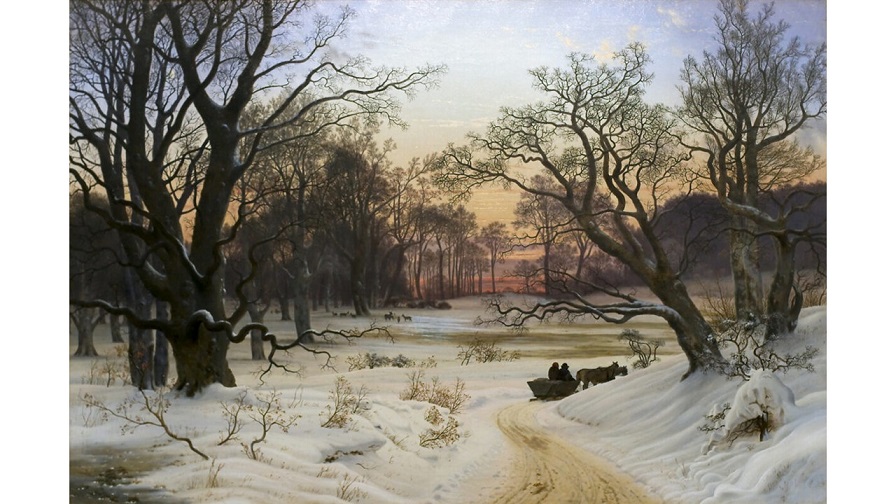.
Winter Sunset
Gnarled, naked boughs, shadowed skeleton arms
Stretch in despair and agony. They frame
Like barbed-wire twists the western sky aflame
Red-orange, ember-glow that no longer warms—
The blasted remnants of a milder day,
Clawing its harsh heir, fading fast away.
Come, moonless, starless night. Come, let your shade
Veil this spent, dying light, this cold decay
That I at this late hour was cursed to see.
Come, spread your shroud in which all visions fade.
Come, coax me to the sweet sleep of the free.
.
.
Adam Sedia (b. 1984) lives in his native Northwest Indiana and practices law as a civil and appellate litigator. In addition to the Society’s publications, his poems and prose works have appeared in The Chained Muse Review, Indiana Voice Journal, and other literary journals. He is also a composer, and his musical works may be heard on his YouTube channel.















Somber poem making excellent use of alliteration, one of which is with sound only, “gnarled — naked and one which is visual only, harsh — heir. Moonless nights do indeed coax us to sleep. Nicely done.
This poem carries a very strong whiff of hopelessness, pain, loss, and sadness. The diction alone is like a heap of shattered glass. It’s natural for winter to summon up these kinds of dour feelings, but here the last five lines are almost an expression of a death-wish. I sincerely hope the poem is fictive, and not revelatory of the poet’s actual emotions.
I take a whiskey maker’s approach to poetry in that I tend to let completed poems sit for a while before I submit them. I wrote this one just over two years ago and only recently revisited it and was stunned at its language (I like your description “heap of shattered glass”) and its almost Buddhist desire for annihilation.
What I was thinking then I cannot recall. To write something like this, I cannot have been cheerful. Most likely the emotional state is fictive in the sense that it amplified what I was actually feeling — again, much like whiskey.
This is such an artistic, musical expression of sadness. The “ember glow that no longer warms” ; the image of the barbed wire twists clawing the heir (and the air?) and the “shroud in which all visions fade” are exquisite, as is the impression the whole poem leaves.
Depressing, yes. But a lot of remarkable imagery and passion in your poem, Adam!
Some amazingly dark imagery here, Adam. A study in darkness without any redeeming imagery or emotion is very difficult to do.
Thanks for the read.
Nice poem, Adam. It makes me want to snuggle under blankets for at least another month.
This poem makes me really appreciate the beautiful painting so much more, thank you.
Poems to sleep comprise one of my favorite strands in the English language poetic tradition. They seem something different from, gentler than, expressions of an absolute death wish. But related of course. A way to transform the temptation to “choose not to be” to a longing for something that resembles death in some ways but heals and restores.
I appreciate how the second part of your poem transforms the situation the first part is spoken from, through prayer: a prayer to an unknown God, the God of sleep. I think the last line similarly casts its charm back over the poem as do the last phrase, the last word: free. Lovely.